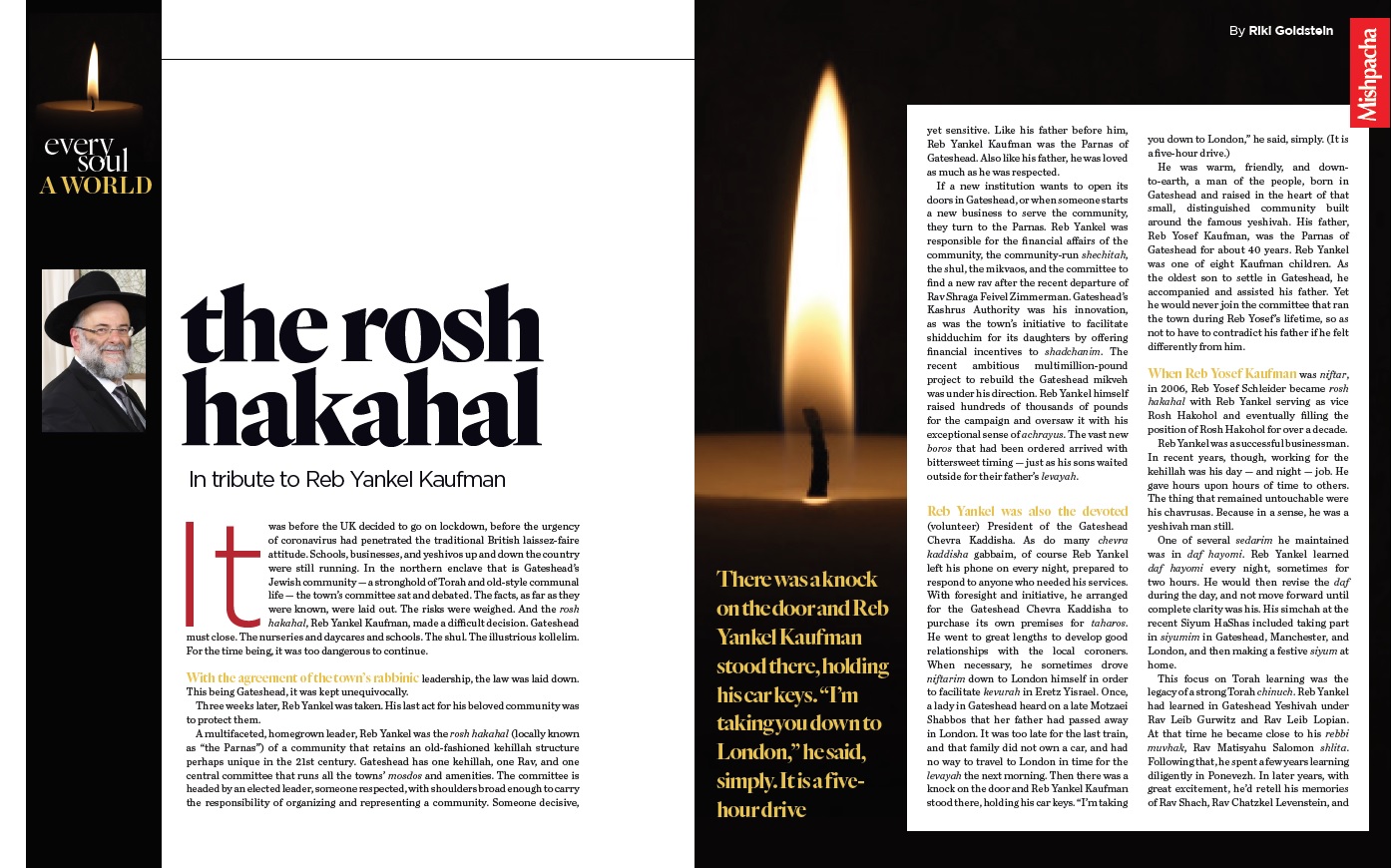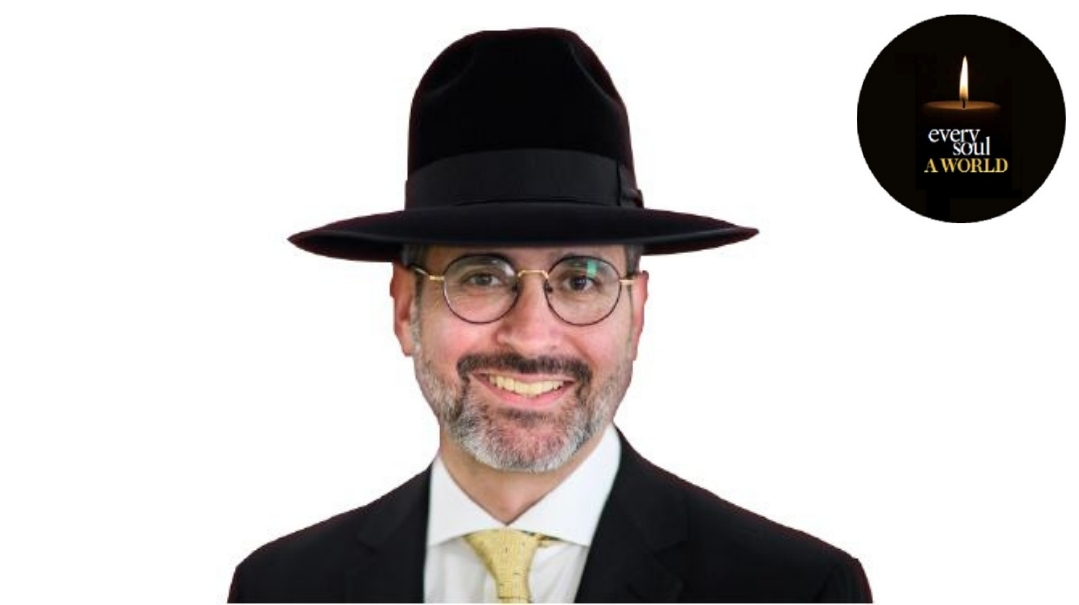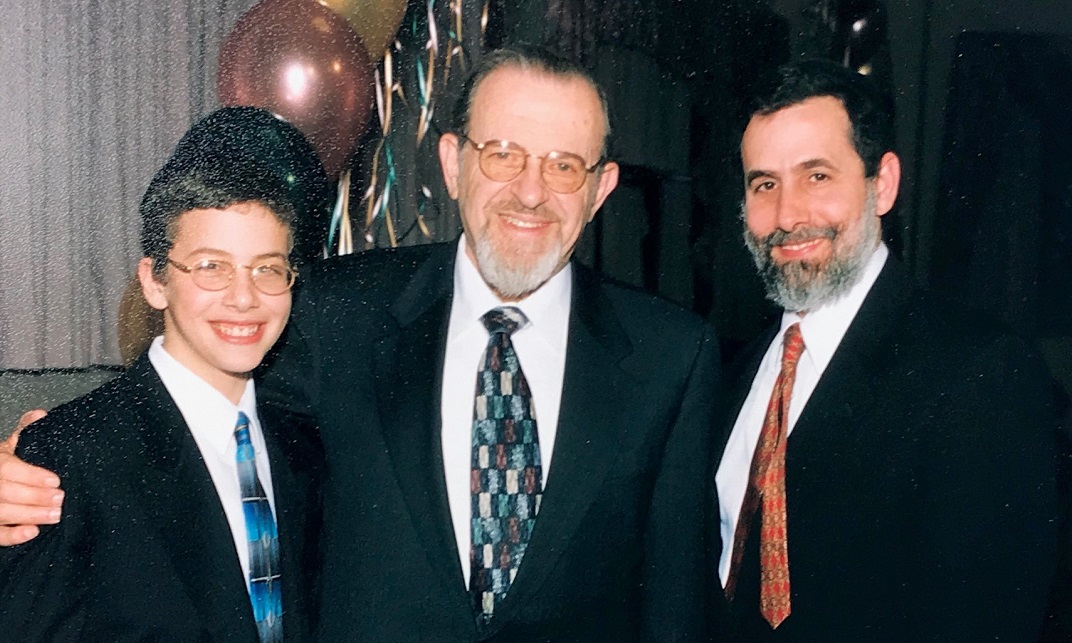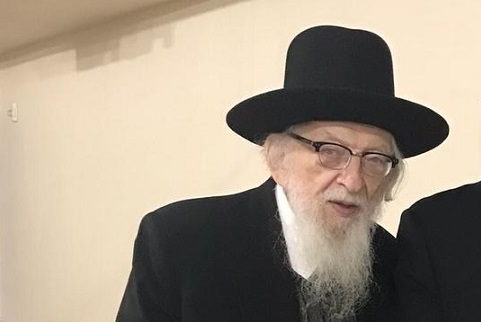Reb Yankel Kaufman
| May 24, 2020His last act for his beloved community was to protect them
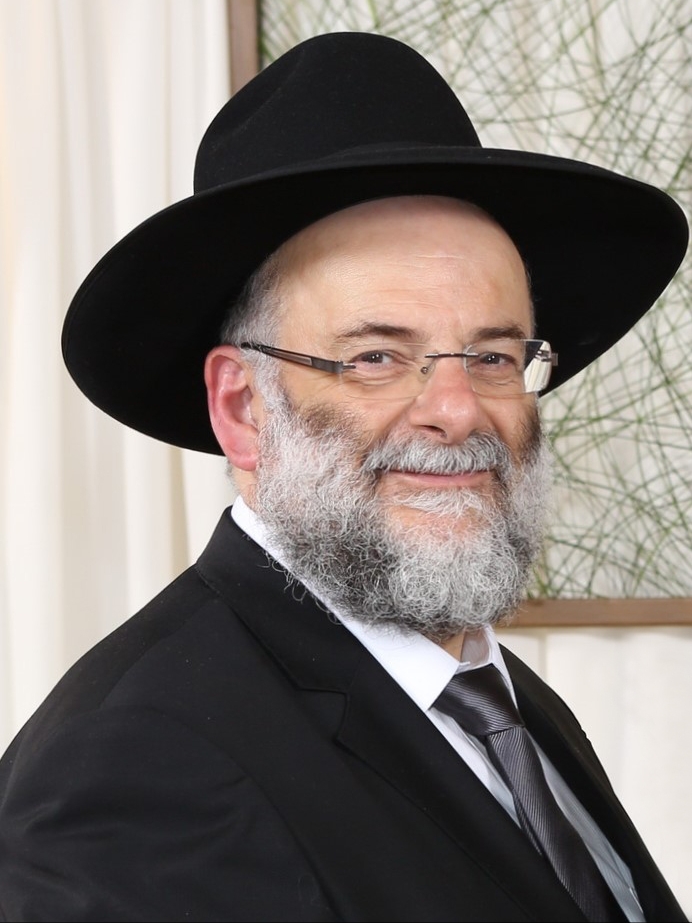
I

t was before the UK decided to go on lockdown, before the urgency of coronavirus had penetrated the traditional British laissez-faire attitude. Schools, businesses, and yeshivos up and down the country were still running. In the northern enclave that is Gateshead’s Jewish community — a stronghold of Torah and old-style communal life — the town’s committee sat and debated. The facts, as far as they were known, were laid out. The risks were weighed. And the rosh hakahal, Reb Yankel Kaufman, made a difficult decision. Gateshead must close. The nurseries and daycares and schools. The shul. The illustrious kollelim. For the time being, it was too dangerous to continue.
With the agreement of the town’s rabbinic leadership, the law was laid down. This being Gateshead, it was kept unequivocally.
Three weeks later, Reb Yankel was taken. His last act for his beloved community was to protect them.
A multifaceted, homegrown leader, Reb Yankel was the rosh hakahal (locally known as “the Parnas”) of a community that retains an old-fashioned kehillah structure perhaps unique in the 21st century. Gateshead has one kehillah, one Rav, and one central committee that runs all the towns’ mosdos and amenities. The committee is headed by an elected leader, someone respected, with shoulders broad enough to carry the responsibility of organizing and representing a community. Someone decisive, yet sensitive. Like his father before him, Reb Yankel Kaufman was the Parnas of Gateshead. Also like his father, he was loved as much as he was respected.
If a new institution wants to open its doors in Gateshead, or when someone starts a new business to serve the community, they turn to the Parnas. Reb Yankel was responsible for the financial affairs of the community, the community-run shechitah, the shul, the mikvaos, and the committee to find a new rav after the recent departure of Rav Shraga Feivel Zimmerman. Gateshead’s Kashrus Authority was his innovation, as was the town’s initiative to facilitate shidduchim for its daughters by offering financial incentives to shadchanim. The recent ambitious multimillion-pound project to rebuild the Gateshead mikveh was under his direction. Reb Yankel himself raised hundreds of thousands of pounds for the campaign and oversaw it with his exceptional sense of achrayus. The vast new boros that had been ordered arrived with bittersweet timing — just as his sons waited outside for their father’s levayah.
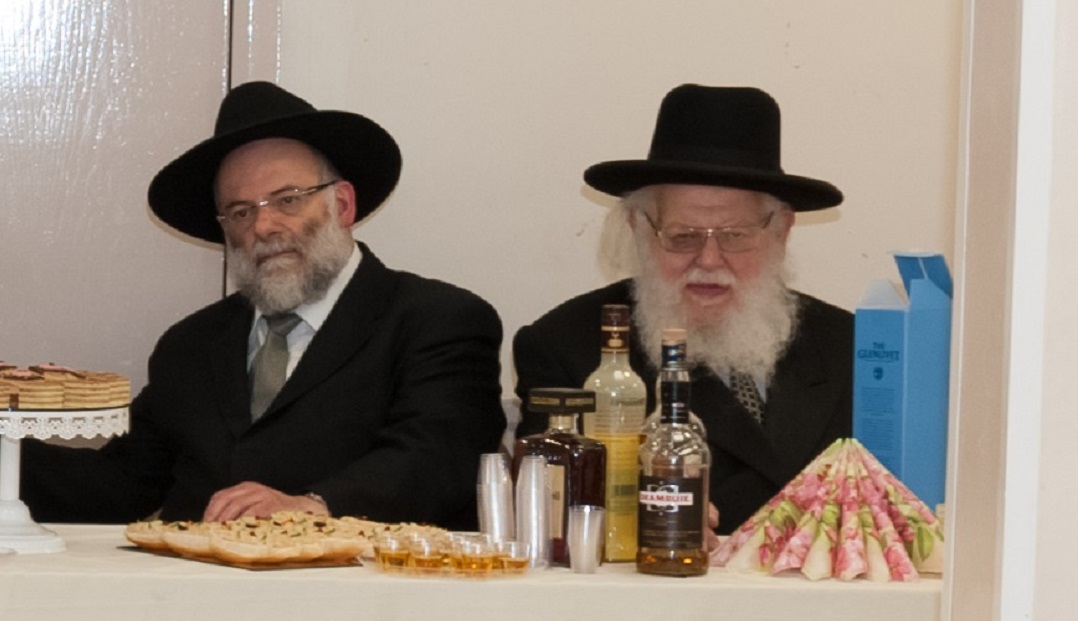
With Rav Falk zt"l
Reb Yankel was also the devoted (volunteer) President of the Gateshead Chevra Kaddisha. As do many chevra kaddisha gabbaim, of course Reb Yankel left his phone on every night, prepared to respond to anyone who needed his services. With foresight and initiative, he arranged for the Gateshead Chevra Kaddisha to purchase its own premises for taharos. He went to great lengths to develop good relationships with the local coroners. When necessary, he sometimes drove niftarim down to London himself in order to facilitate kevurah in Eretz Yisrael. Once, a lady in Gateshead heard on a late Motzaei Shabbos that her father had passed away in London. It was too late for the last train, and that family did not own a car, and had no way to travel to London in time for the levayah the next morning. Then there was a knock on the door and Reb Yankel Kaufman stood there, holding his car keys. “I’m taking you down to London,” he said, simply. (It is a five-hour drive.)
He was warm, friendly, and down-to-earth, a man of the people, born in Gateshead and raised in the heart of that small, distinguished community built around the famous yeshivah. His father, Reb Yosef Kaufman, was the Parnas of Gateshead for about 40 years. Reb Yankel was one of eight Kaufman children. As the oldest son to settle in Gateshead, he accompanied and assisted his father. Yet he would never join the committee that ran the town during Reb Yosef’s lifetime, so as not to have to contradict his father if he felt differently from him.
When Reb Yosef Kaufman was niftar, in 2006, Reb Yosef Schleider became rosh hakahal with Reb Yankel serving as vice Rosh Hakohol and eventually filling the position of Rosh Hakohol for over a decade.
Reb Yankel was a businessman. In recent years, though, working for the kehillah was his day — and night — job. He gave hours upon hours of time to others. The thing that remained untouchable were his chavrusas. Because in a sense, he was a yeshivah man still.
One of several sedarim he maintained was in daf hayomi. Reb Yankel learned daf hayomi every night, sometimes for two hours. He would then revise the daf during the day, and not move forward until complete clarity was his. His simchah at the recent Siyum HaShas included taking part in siyumim in Gateshead, Manchester, and London, and then making a festive siyum at home.
This focus on Torah learning was the legacy of a strong Torah chinuch. Reb Yankel had learned in Gateshead Yeshivah under Rav Leib Gurwitz and Rav Leib Lopian. At that time he became close to his rebbi muvhak, Rav Matisyahu Salomon shlita. Following that, he spent a few years learning diligently in Ponevezh. In later years, with great excitement, he’d retell his memories of Rav Shach, Rav Chatzkel Levenstein, and Rav Shmuel Rozovsky. His children knew that if they mentioned Ponevezh, his face would light up.
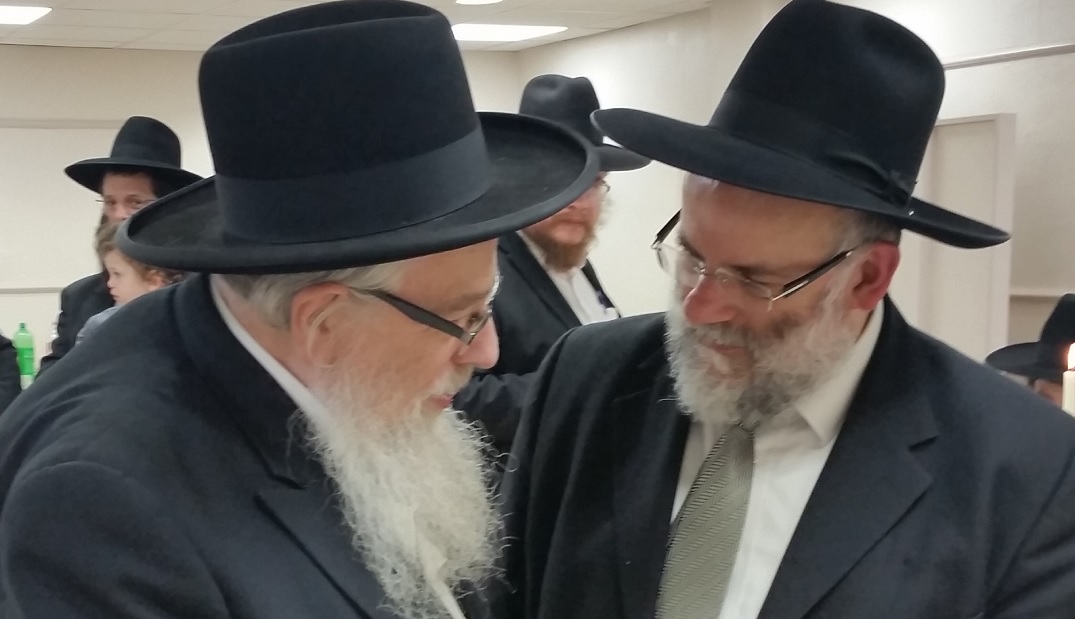
In conversation with the Rosh Yeshiva, Rav Avrohom Gurwitz shlita
Then there was the period in Sunderland kollel, where he learned several masechtos be’iyun and forged bonds with the likes of Dayan Chanoch Ehrentreu, Dayan Gershon Lopian, and Rabbi Chaim Shmuel Lopian. During this time, Yankel married Esther Morgenbesser from Zurich, Switzerland, who partnered with him in setting up a home that bustled with guests and chesed.
Rosh Hakahal
Reb Yankel took his position as rosh hakahal to the next level. Gateshead’s kehillah matters, he felt, were his personal achrayus, but he remained sensitive and warm, not losing sight of the individual for the community. Who should resolve issues between schools and parents, achieve workable solutions in the gray area between the family’s needs and the town’s standards, and help different organizations work together for their mutual benefit? The community grew, and the demands on the Parnas’s time grew. Reb Yankel ironed out disputes with a sure hand and wise advice. A newcomer who was struggling to find his feet in business received a fatherly letter full of encouragement from Reb Yankel.
In private life, he was a quietly generous man. When he heard that one of the yeshivos in town had no soda for Yom Tov, he realized that the bochurim would be upset and quietly supplied the drinks, forbidding his children to tell anyone. For years, Reb Yankel sponsored free milk for all of the town’s kollelim, knowing that the yungerleit would all learn better when coffee was freely available.
When he noticed that a fellow shul goer wore an extremely threadbare tallis and was not replacing it, Reb Yankel purchased a new tallis and gave it to the man’s brother. “Give it to him from you.”
On a much larger scale, an acquaintance from America had successfully applied for his daughter to attend Gateshead Seminary. However, he could not afford the tuition fees. He called Yankel Kaufman to inquire about student grants and scholarships that might be available. A few days later, Reb Yankel called back to say he had sorted out a grant for this student and informed this father of the remaining sum to be paid. The family were pleased, but they never realized that the “grant” was from their friend’s own pocket.
He was a father figure in the town, looking after Gateshead — its people, not just its community — absorbing many tzaros and able to assess situations with seichel hayashar and experience.
He took the responsibility so seriously that he didn’t like to leave the town for Shabbos, feeling that he should stay in Gateshead and daven in the shul. In fact, until Reb Yaakov was admitted to hospital, he was busy with the needs of the community, especially setting Gateshead in the new reality of the corona situation.
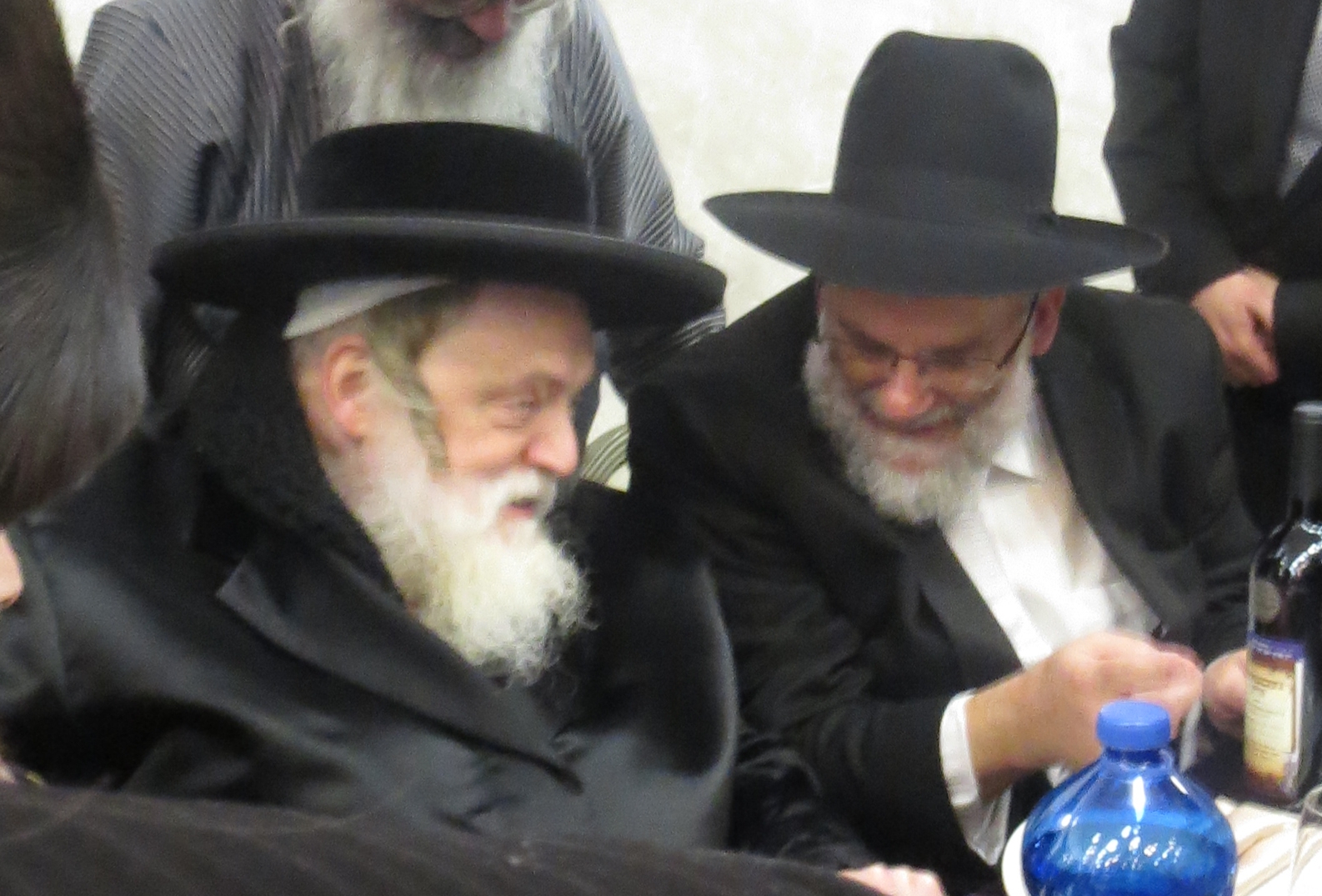
Reb Yankel had a close relationship with the Toldos Avraham Yitzchak Rebbe shlita
Reb Yankel had planned to be buried in Eretz Yisrael, but his petirah on Tuesday morning, the day of bedikas chametz, at the nadir of the corona crisis, made this seem highly unlikely. With a three-day Yom Tov approaching, there was much concern. A cargo plane was leaving to Tel Aviv from London on Tuesday afternoon. In order for the aron to be loaded, it had to be in a metal coffin. Just one hour before Reb Yankel’s levayah, a delivery of metal coffins ordered ten days previously suddenly arrived in Gateshead.
The levayah and kevurah on Har Hamenuchos took place on Erev Pesach. For a man who had been so devoted to chesed shel emes for years, miracles had opened all gates for his own final rest.
CLICK TO VIEW/DOWNLOAD PDF VERSION
Oops! We could not locate your form.

